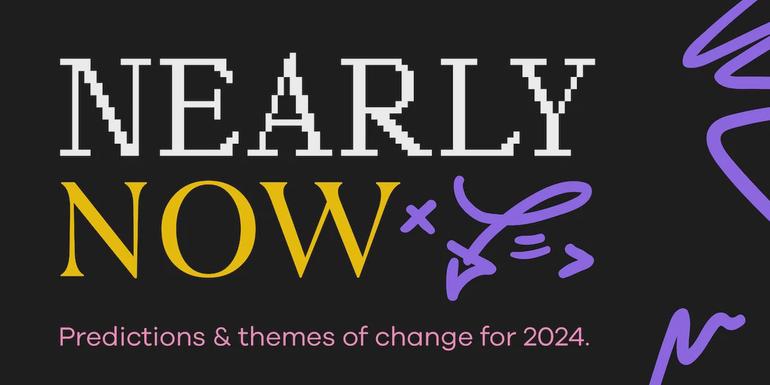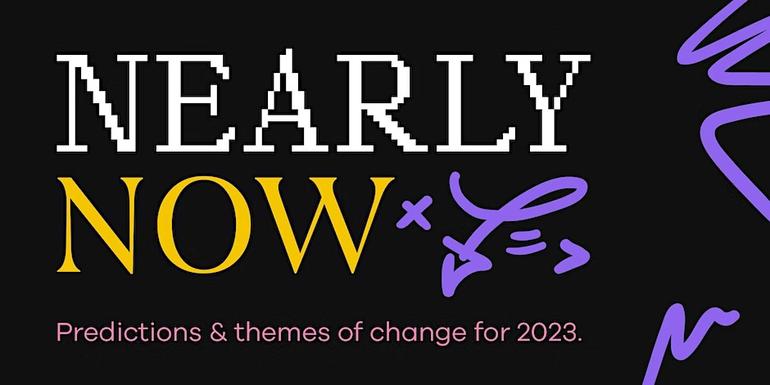
Faculty of Change 2020 Predictions Recap
How We Did in the Year That Was
Given how the past 12 months have transpired, gloating about how everyone is as burnt out as we anticipated, or is coping with difficult times through recreational substance use, is not as entertaining as it was last year. COVID has ruined our yearly ritual of dunking on other consulting firms for missing the forest for the trees.
What we have learned is that if you look at people, their motivations, lives, needs, unmet needs, and their lived experiences, you can learn more and prepare for change better than with an industry- or markets-driven approach.
At the beginning of 2020, Faculty of Change laid out 8 themes that we thought would be drivers of behavioural change in the year to come. These are designed to be memorable. Used to influence decisions, not make them. In the spirit of accountability, let’s review how we did:
Degrowth
The idea that our world and our society can not sustain growth forever and that we actually need to shrink to be sustainable.
ACCURATE
Starting with an influential article by John Cassidy in the New Yorker about how degrowth would overhaul society, degrowth was frequently referenced as one of the hallmarks around “building back better.” As society explores its path to recovering from the pandemic, many of the progressive ideologies revolve around encouraging living within one’s means, in a homeostasis with the environment. The pandemic, and the resultant societal fracturing, can be seen as an early warning of what awaits without degrowth.
Burnout
The impact of when mere existence becomes tiring.
ACCURATE
Burnout was accelerated but would likely have been a factor with or without a pandemic. The continued erosion of “personal space” in favour of an only-on culture works for but a small subsection of the population. Uncertainty and erosion of the safety net continued unabated. But there is hope! With the end of at-work socialization, a revival of communities (and friends, see our 2021 predictions!) will bring new life to neighbourhoods and provide the outlets and connection people so crave.
California Sober
Moving towards “natural” drugs and low alcohol beverages.
ACCURATE
Low alcohol spirits saw huge adoption, driven by the direct-to-consumer boom. Products like HAUS and Ghia were frequently sold out, even though they kept issuing new flavours. Sufferfest, one of the first “functional beers” was acquired by Sierra Nevada brewing and Michelob Ultra, the legacy player in the space, grew sales by more than $500M in 2020. As well, legalization of marijuana continued apace in the United States and cannabis retail accelerated in Canada.
Edutainment
The mass adoption of documentaries and other educational content as entertainment.
ACCURATE
2020 saw major documentaries making more culture impact than blockbuster movies (especially because they do not lose anything on the small screen). Tiger King and The Last Dance were one of the few pieces of culture that went mass this year. The most recent season of Great British Bake Off and the new found popularity of The Repair Shop show suggest that this will continue to be a driver of entertainment into 2021.
Aspirational Realness
Influencers finding much higher engagement from sharing their “real” selves and issues.
ACCURATE
The pandemic popped the influencer-culture bubble like a failed lip filler procedure. The media was filled with think pieces on how “COVID killed Influencer Culture” or “Influencers Lose their Gloss.”
What these articles are referring to is the end of the artifice around being an influencer. There was strong blowback to any of the traditional behaviours of “flexing for the ‘gram.” Any indication of lack of authenticity was justification for cancellation. Those that survived the culling are the influencers that show more of the personal selves and lives, like Twitch streamers and the new brand of TikTok creators.
Sound of the 80s
The dominance of music from the 80s as the soundtrack for everyday life.
ACCURATE
2020 was the year Fleetwood Mac came back to the charts. Not because of any new music, but because of 420DogFace and his love of skateboarding and listening to “Dreams.” Hit songs like Dua Lipa’s “Physical” and the Weeknd’s “Blinding Lights” both wear their 80s heritage proudly.
Psychedelics
The mainstreaming of psychedelic drugs.
TOO EARLY
While 2020 saw legalization of magic mushrooms in Colorado and greater adoption of psilocybin, LSD and MDMA in psychotherapy (including IPOs of psilocybin therapy companies like Compass Pathways), the cultural impact and change did not happen. 2020 still had big “cocaine and weed” energy. Possible reasons for the delayed adoption could come from group consumption practices being limited (ayahuasca trips and the vomiting are not COVID-safe).
Premium Technology
High-end (and expensive) software limiting access to the means of production to the elites.
ACCURATE
Looking at the below chart, cribbed from the Substack Not Boring, you can see a movement away from traditional “free” software or employer-supported tools to more expensive and niche solutions like Notion, Roam, Figma and Airtable. As well, Substack is an example of premium technology. With the ability for creators to easily create paid newsletters, there are now more and more “premium” information sources, only available to those that can pay.
In Conclusion
The more we do this and the better honed our methods are, the more accurate we get at identifying lasting change in uncertain times. At Faculty of Change, we can help your organization build up a similar muscle. Check out our 2021 predictions or reach out to see how we can help.


